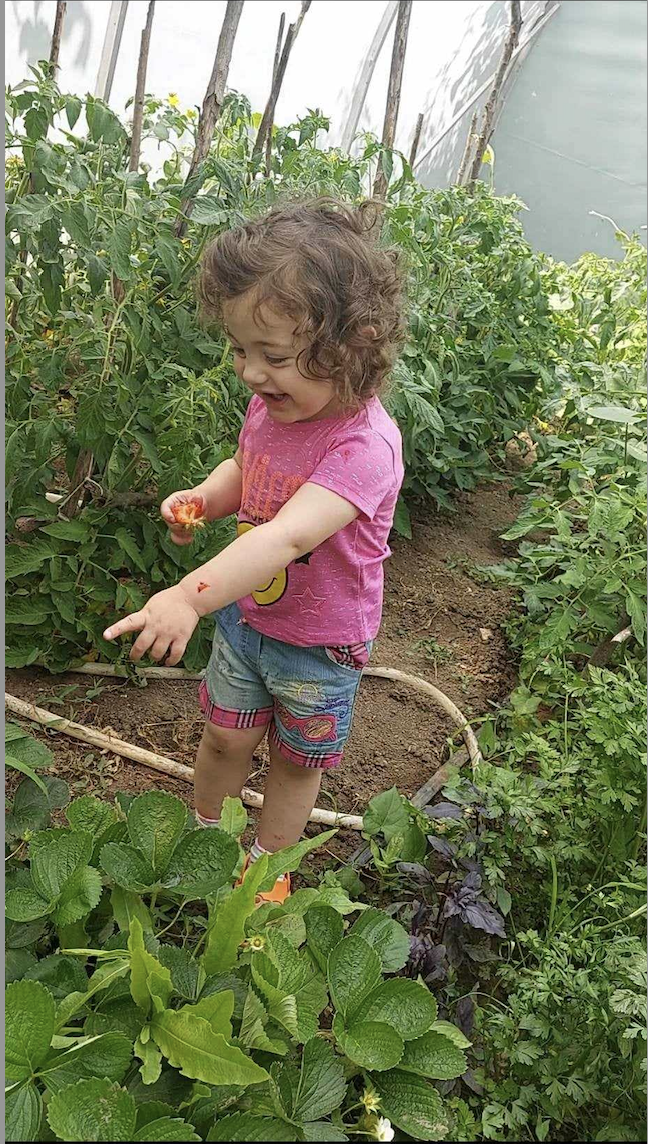The ongoing blockade of Artsakh by Azerbaijan keeps residents under constant threat and looming uncertainty about their future. Locals struggle to provide even the most basic necessities for themselves and their families amidst the worsening humanitarian crisis, which has depleted energy sources and gutted the economy, already weakened by the 44-day war in 2020. The situation is worrisome in Stepanakert, the capital of Artsakh, as compared with the villages because of the meager agricultural land for growing food and lack of transportation means due to fuel deficiencies.
Armenia Tree Project (ATP) checked in with beneficiaries of its Artsakh Backyard Greenhouse Program, to whom it had distributed vegetable seeds before the blockade. ATP’s 51 Backyard Nursery beneficiaries from the Askeran and Martuni districts have some alternatives to the shortages. In addition to cultivating their backyards, they grow vegetables and greens in the small greenhouses. This helps them and their families to overcome malnutrition and restricted diets.
As part of a larger community initiative, ATP built a greenhouse at the Shushi Technological University in Stepanakert last year, and the staff was provided with vegetable seeds. The greenhouse and vegetable seeds have allowed the university to provide the local community with fresh herbs and vegetables.

In a remote village, ATP Backyard Greenhouse Program beneficiary Armine Baghisyan provided much-needed support to her pregnant daughter Arus and granddaughter Sofia. “Life has become an everyday struggle, but I don’t have the right to give up. Every day I am awakened by my little sunshine Sofia,” Arus said.
“There is only one car, the bread car, which delivers bread to all the villages in the region. We are lucky enough that the bread man doesn’t mind transporting vegetables and other goods, which my mom and others send to their families and relatives in the towns,” she continued.
Unfortunately, because of the continued blockade and fuel shortages, moving around has been almost impossible since June. Arus’s two-year-old daughter, Sofia, doesn’t understand why her parents can no longer take her to the village to see her beloved granny. Armine has been left alone to tend to her backyard nursery.
“The goods from my greenhouse and backyard were the only source of vitamins for my daughter and her yet to be born child. I spend all day gardening and taking care of each plant carefully. The prices for vegetables and fruits, if available, are skyrocketing. A kilogram of tomatoes is 2,500 drams, which is about 10 times higher than it used to be. This blockade has made us realize lots of things. Almost everybody in the village is now actively engaged in farming,” Armine said.
In a move to bolster Artsakh’s food security, 90 tons of seed potatoes were delivered to the residents of Artsakh’s Martuni region in April through a collaboration between the ATP, Armenian Missionary Association of America (AMAA) and the Tufenkian Foundation.
“Unfavorable weather conditions, heavy rainfalls, hail and the inability to use agricultural machinery because of fuel and electricity shortages have certainly negatively impacted the crop yield,” said Masis Zargaryan, Deputy Head of Martuni District Administration. “But it goes without saying that even the smaller yields from the vegetable seeds have been a godsend. We’ve been able to provide markets, to some extent, with fresh produce such as cucumbers and tomatoes. I am hopeful that there is a light at the end of the tunnel, and we are going to overcome all these horrors with dignity. There is no other way.”
Though the situation in Artsakh remains uncertain, we continue preparing aid with the hopes of transporting the necessary tools to Artsakh to keep the Artsakh Greenhouse Nursery Program alive. If you’d like to contribute to this program, please visit our website.


Be the first to comment